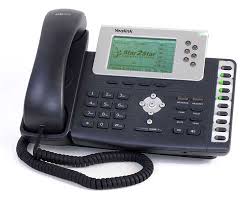By Michelle Accardi
Many businesses today are still struggling with the inflexibility, unreliability, and expense of their existing legacy phone systems. After all, 40 percent of small businesses still operate using traditional phone lines, according to an AccessDirect survey. However, considerable gains are to be had by upgrading your business phone system, gains that are already being enjoyed by companies that have embraced a modern hosted VoIP business communications infrastructure enhanced with unified communications (UC).
In this blog, we will highlight the top telephony restrictions you can overcome with a new phone system, including some of the myriad benefits of UC and the perks of cloud-based VoIP telephony. Together, these contemporary technologies will bring your organization forward into a world of reliable, productive, and efficient corporate communications and collaboration.
Here are five restrictions of a traditional PBX:
Missed phone calls: Don’t expect your traveling salespeople to close deals at the rate at which your competitors do if they don’t have access to the same solutions that enable remote work capabilities. UC can bring an ability to forward calls made to desk phones to smartphones using Find Me/Follow Me call routing to your sales team’s tool kit. Additionally, voice messages can be delivered to email addresses as an attachment with a reminder notification sent to phones.
Expensive repairs and maintenance: With a hosted VoIP business phone system, companies are no longer bound to the exorbitant costs associated with installation, maintenance, and repairs that come with managing on-premises telephony solutions. Instead, many aspects of managing your new system can be offloaded to a first-rate provider. These include support requirements (provided 24/7/365), software updates that are free and automatic, and quick replacement of broken parts (even for parts damaged through natural disaster).
Unreliability and downtime: Your new hosted VoIP solution should come replete with automatic backup and failover. Never again will your business feel the heat of customer defection caused by the unavailability of your communications system—not when your hosted provider is in charge of keeping your platform up and running. A best-in-class provider will continuously monitor the health of your phone system; if a problem is detected, redundant Internet connections and data centers will be available to circumvent disruptions. In the case of a disaster, any outage at your office will be covered by quickly and easily rerouting calls to designated employees, cell phones, landlines, or other office locations.
Business disconnects during travel: With the right hosted VoIP business phone system, your company no longer has to deal with disruptions to employee productivity due to travel. Many phone systems include UC conferencing capabilities, such as a company directory for easily selecting participants and sending invitations via on-screen notifications. Some solutions also include a white board within the videoconference for viewers to collectively edit any document. Other UC tools that will enhance collaboration among disparate employees include instant text messaging, fax receipt, and delivery and call management.
Costly carrier fees: A hosted VoIP system will allow you to cut your monthly phone bills by up to 50 percent. A line pooling feature, for example, will enable your business to share a single set of lines among all its locations, reducing the number of lines for which you must pay. Best-in-class systems and equipment will also run on less power than a legacy system, reducing your power bill.
Michelle Accardi is Chief Marketing Officer at Star2Star Communications. Click here for more information about how Star2Star can deliver your cloud-based phone system.










